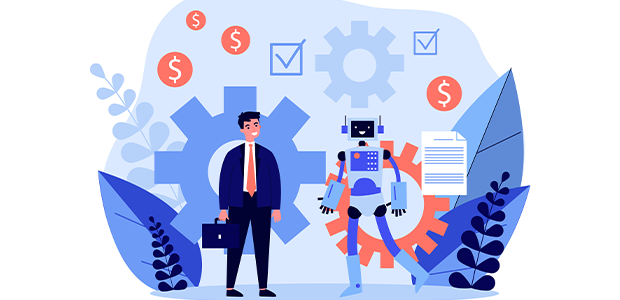
What it means to be a CEO in the AI Era
The topic of Artificial Intelligence (AI) comes up in nearly every conversation I have right now – whether that’s with my executive team, Board, employees, clients, shareholders or other stakeholders. It seems to be the only thing that people are interested in and want to talk about. And rightly so, in my view.
AI is transforming our personal lives and broader business landscape daily, right in front of our eyes. I’ve never lived through a pace of innovation like this in my career or, thinking about it, lifetime. And the staggering fact is this: the speed and rate of development is only going to accelerate. So, the big question is, what to do?
What happens when you are forced to innovate?
COVID shocked every business in its own way – some positive, some negative. In my firm, we had to quickly move a thriving in-person events business online in a matter of weeks. In the space of two years, we ran 70+ digital events with our clients and community from across the investment management and pensions industry; because at the end of the day, relationships matter – and if we couldn’t meet in person, we still had to find a way to connect. These events generated hundreds of recordings, which we started to analyse and share with clients. ‘Did you see this?’, we’d ask them, or ‘did you read this sentence?’, we pointed out – there was so much gold dust in each and every session we hosted.
Despite our enthusiastic sharing of these with our clients, we quickly worked out that that everyone was too ‘time poor’ to watch a video playback or even search a transcript. As a consequence, we asked ourselves – could we invent a piece of software that analyses what actually happens in a meeting? This was the genesis of SOFI – our AI tool developed to analyse meetings, helping clients save time, check messaging, improve delivery, monitor performance and capture questions.
Imagine if you made every meeting just 10% more efficient – what would you gain?
If you strip everything away, at the heart of business is maintaining existing relationships, and building new ones. To do this, we have meetings – a lot of them. Some may say we spend far too much time in meetings. But this coming together is important, and making the most out of every interaction is essential – because everyone’s time is finite. So, what if we could make meetings more efficient and effective, and provide insights we were previously unable to uncover?
SOFI records a meeting and provides a summary (call report), generates the minutes and action points, captures the questions, and lets me know if I’ve landed the points I wanted and needed to. It allows me to compare my performance and benchmark my presentations, giving me feedback after every meeting, every day.
Knowing I have SOFI running in the background in every meeting, I am freed from scribbling copious notes, and can actively listen, pay full attention and be entirely present. This in and of itself is a gamechanger. Try it. Go to a meeting and just listen and engage. It is transformational. Your only fear will be, how can I remember everything?
And this is just the beginning. Since SOFI, I’m able to share all of my notes with my colleagues, and the team can stay up to speed (in real time!) on conversations the business is having every day. This is important because when we now regroup internally as a team, we aren’t spending lots of time debriefing. Instead, we spend our time discussing what we’ve learned, brainstorming new ideas, thinking about clients’ challenges, and problem solving at a much quicker rate than was previously imaginable.
Our experience with further AI integration
We built our AI tool to solve an acute problem we faced as a business – how do we make sense of a meeting, make it more efficient, and give us back time each and every day? At mallowstreet, we are saving valuable hours every day across the team. These time savings quickly compound, and it has been rather amazing to see the efficiencies first hand.
Admittedly, being a small business has its advantages – we are able to experiment and move quickly; to be truly nimble. We try new ideas, and my motto is ‘fail fast’ – test out an idea, see if it works, and if it doesn’t, that’s fine. Just work out why it didn’t. Each time you do this you add a new page to your playbook.
We are constantly thinking about how we can use AI to solve other business challenges: generating client reports, helping with forecasting, automating repetitive tasks. Essentially any task that doesn’t require a person to intervene. If we can free up our team to do what only humans can do – connect with people and build relationships, generate new ideas and concepts, and think laterally – we are on to a winning formula.
AI implementation – taking the first step
We found our AI use case by rethinking how to analyse what happens in a meeting. The first step is to define the problem you are trying to solve. Next, make sure you’ve got a framework in place to evaluate AI and interpret the results. Consider AI as a tool that works alongside you and your team, helping to achieve your end goals as quickly and as safely as possible.
AI is here to stay and, as far as I can see, isn’t going anywhere – except to become more embedded in our daily lives. It’s best to approach AI with a growth mindset and open curiosity – how can this help revolutionise my business or the way I work? I think you will quickly find the benefits are immediate and transformational.

